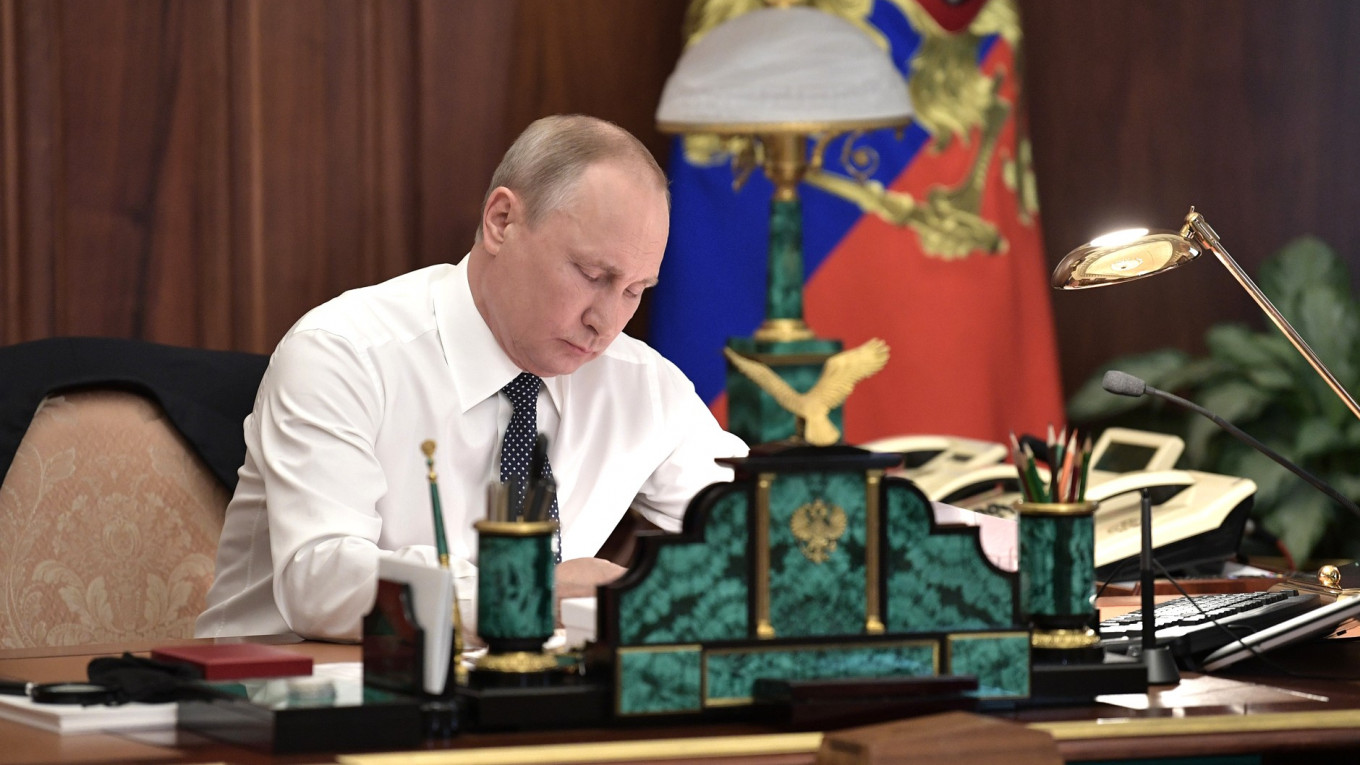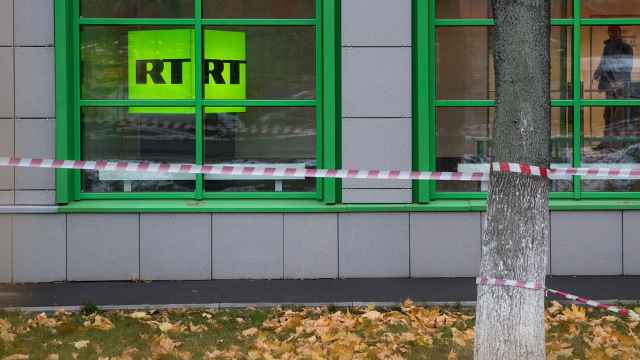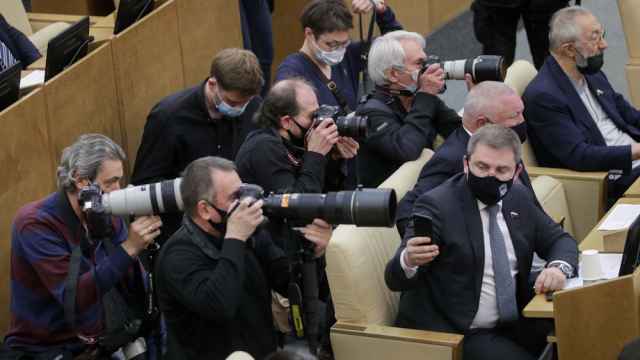Russian lawmakers passed a controversial set of bills that would make it a crime to “disrespect” the state and spread “fake news” on Wednesday, setting the legislation up for President Vladimir Putin’s signature.
The bills amending existing information laws overwhelmingly passed both chambers of Russian parliament in less than two months. Observers and some lawmakers have criticized the legislation for stifling free speech and its vague terminology, which critics say could lead to mass arrests.
The Federation Council, Russian parliament’s upper house, passed the legislation in its first and only reading on Wednesday.
If passed and signed by the president, the legislation will establish punishments for spreading information that “exhibits blatant disrespect for the society, government, official government symbols, constitution or governmental bodies of Russia.”
Online news outlets and users that spread “fake news” will face fines of up to 1.5 million rubles ($22,900) for repeat offenses.
Insulting state symbols and the authorities, including Putin, will carry a fine of up to 300,000 rubles and 15 days in jail for repeat offenses.
As is the case with other Russian laws, the fines are calculated based on whether the offender is a citizen, an official or a legal entity.
More than 100 journalists and public figures, including human rights activist Zoya Svetova and popular writer Lyudmila Ulitskaya, have signed a petition opposing the laws, which they labeled "direct censorship.”
The Kremlin, however, denied the legislation amounts to censorship.
"What's more, this sphere of fake news, insulting and so on, is regulated fairly harshly in many countries of the world including Europe. It is therefore of course necessary to do it in our country too," Kremlin spokesman Dmitry Peskov said.
Tougher Internet laws introduced over the past five years require search engines to delete some search results, messaging services to share encryption keys with security services and social networks to store users' personal data on servers within the country.
Reuters contributed reporting to this article.
A Message from The Moscow Times:
Dear readers,
We are facing unprecedented challenges. Russia's Prosecutor General's Office has designated The Moscow Times as an "undesirable" organization, criminalizing our work and putting our staff at risk of prosecution. This follows our earlier unjust labeling as a "foreign agent."
These actions are direct attempts to silence independent journalism in Russia. The authorities claim our work "discredits the decisions of the Russian leadership." We see things differently: we strive to provide accurate, unbiased reporting on Russia.
We, the journalists of The Moscow Times, refuse to be silenced. But to continue our work, we need your help.
Your support, no matter how small, makes a world of difference. If you can, please support us monthly starting from just $2. It's quick to set up, and every contribution makes a significant impact.
By supporting The Moscow Times, you're defending open, independent journalism in the face of repression. Thank you for standing with us.
Remind me later.






